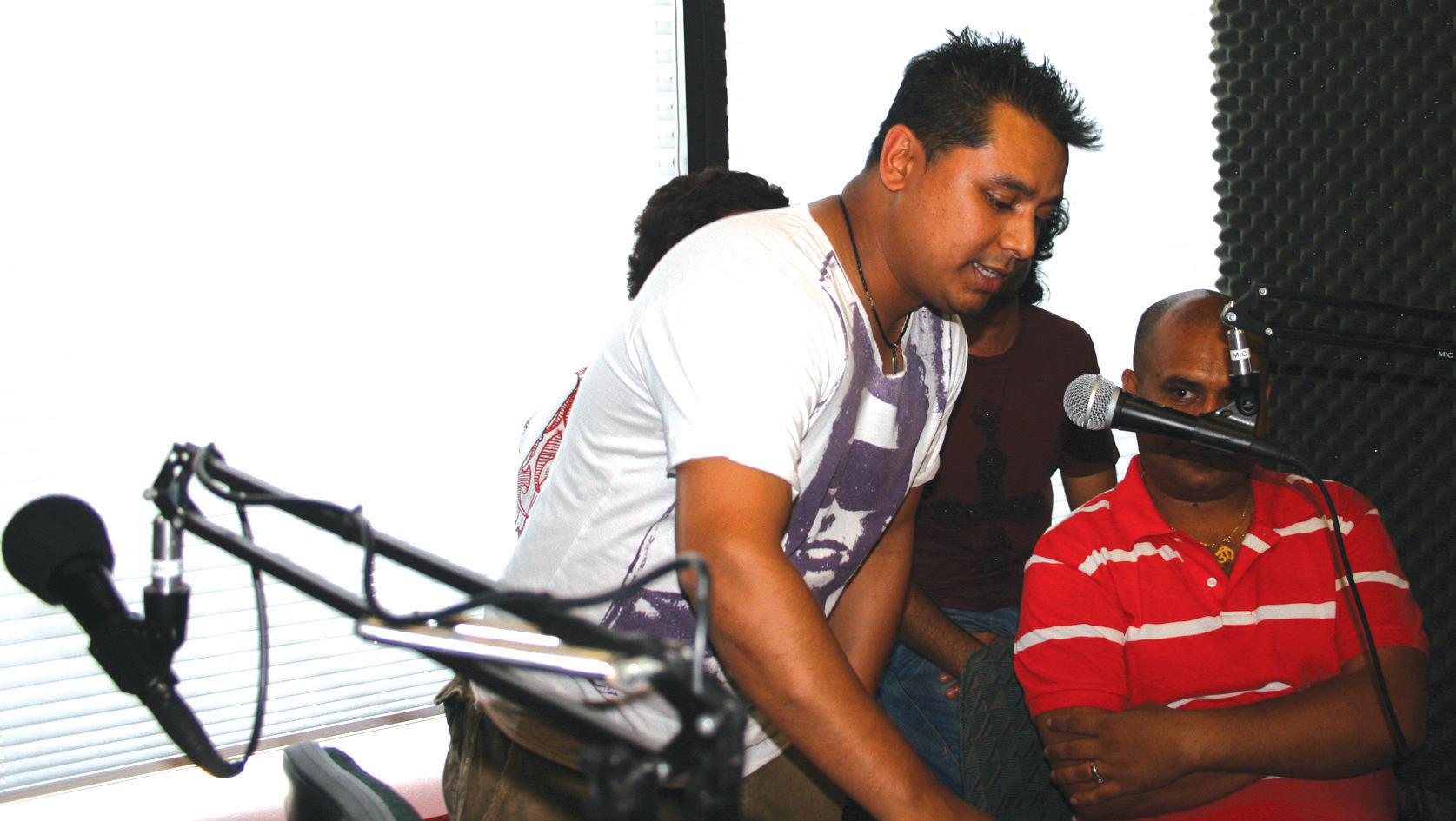
8 minute read
Idolsensation
from 2009-12 Melbourne
by Indian Link
Singer Arunaditya Basu will never forget his first ever stage performance. He was all but five years of age, and it was India’s Independence Day. His song, the patriotic Insaaf ki dagar pe, had earned him his first music award.
But the award didn’t matter; it was the exhilaration of it all. He was hooked for life.
There is another stage performance that Arunaditya (Arun) will hopefully not forget for a very long time. This time round, the audience was just a little bit bigger – tens of thousands, who listened to him in different cities across different continents. His numbers Yeh bandhan to, jhanak tori and Woh pehli baar had again won him a coveted award, in a rather unique contest
The dashing 29-year-old singer was announced as the winner in the final episode of Indian Link Radio’s Link Idol (ILI) 2009 series that aired on 22 Nov.
The final contest of the series, with the three finalists Arunaditya, Kshitij Bhatnagar and Gurpreet Sharma, was held on 14 Nov. Listeners’ votes came in over the following week. The final count was made on the morning of 22 Nov by Indian Link Radio’s Priti Sharma, even as the contestants gathered in the studio to put the show live on air.
ILI host Amit Grover tried his chatty best to diffuse the prevailing tension, and Arun’s face broke out in relief as Station Director Rajesh Thakur announced his name as winner.
Arun had won by a landslide – he pulled weight from a whopping 60% of Indian Link Radio listeners.
Kshitij and Gurpreet were declared second and third place winners respectively.
Arun took home a cash prize of $500. Kshitij and Gurpreet received $250 and $100 respectively.
Other than this, all three have won the opportunity to lend their voices on a new album to be produced locally by Mumbai musician Amit Diwadkar.
Arunaditya at ILI
Arun first heard about ILI from a friend Rajeev who was himself trying out. He called in for an audition, and sang the blissful Rim jhim gire saawan. He was one of 60 participants who made it through that initial round.
Being based in Canberra, Arun had not heard last year’s inaugural ILI series on the radio. But this year, he was tuning in on the internet.
Jab se tere naina… saw him through to the second round, where 30 of the singers were eliminated. From then on, it was steady progress to the Top 20, Top 17, Top 13 and then Top 6.
“By this time, the competition was tough. And the fun was beginning. Each singer was good! Everyone had the potential. I particularly admired Gurpreet, Kshitij and Pankaj for their unique styles of singing”.
“For my own part, I did my best to show versatility. I like to sing a wide variety of songs, both old and new. So I chose different singers and genres.
But the ones which suit me the most, are the high-pitch melodious songs, like Suno na, Tumhi se... I love to sing songs of Kishore Kumar, Shaan, Sonu Nigam and Shankar Mahadevan”.
Yet, he admits, after the Top 6 announcement it occurred to him for the very first time, that he actually stood a chance.
“Before this, I was simply enjoying my singing. A different challenge was set for us at each level. I gave serious thought to song selection at every stage. And then I just put my heart and soul into practice – I just wanted to sing well, more than anything else”.
When he entered the contest, he reveals, he didn’t even know what the prize was, or if there was one other than the prize in name. “It didn’t, seriously, occur to me. Looking back, I just enjoyed the moment… every moment! When I recorded the songs, and when the judges gave me feedback, I just absorbed everything in. I can confidently say now that more than the award, it was a true learning experience for me”.
And he hopes to keep learning.
“ILI has motivated me to get some professional training. I’m currently looking at taking some lessons in Hindustani classical music”.
Of course he has always been a serious student of music, for as long as he can remember. He has already performed in innumerable shows around India and in Australia, and even has an album of original songs with his best mate, Nitin Dubey. Called Udta Dhooan, it was produced by the two young musicians in Australia and mastered in the UK. It was put to sale here, in India and in the UK. (Nitin has constantly guided Arun’s musical endeavours – he helped him pick his numbers for ILI).
Arun plays the guitar and mouth organ expertly.
Arun claims his idols are Kishore Kumar and Sonu Nigam. “My all-time favourite song has to be Dil hai ke manta nahin, the most romantic song I’ve ever heard. I would love to sing for AR Rahman – he’s mastered the art of music arrangement and post-production over and above the skills of coming up with a good tune”.
When he is not singing, Arun works as a patent examiner at IP Australia. He loves playing video games and fishing.
(The Bangalore-born Bengali Babu came to Australia in 2002 as a student. He gained degrees in electronics and biomedical engineering at Monash and RMIT).
Rajesh Thakur has just finished compiling the top ten songs from the 150 that were recorded for this year’s
“Of the ten we’ve picked,” he reveals, “three are by Arun Basu. That should give you an idea of how good he is”.
Actually Rajesh claims he was so impressed by this year’s contestants that he wasn’t sure who would emerge the final winner after the top 6 were announced.
“Well, as it turns out, I wasn’t sure, but our listeners certainly were. The final tally showed a resounding win for Arun – with 60% of the votes!”
Rajesh can be forgiven for loving all the contestants equally. Having mentored them over a four-month period, he forged good relationships with each of them as he helped them pick their songs for each challenge, practiced the song with them repeatedly and then recorded them for the contest.
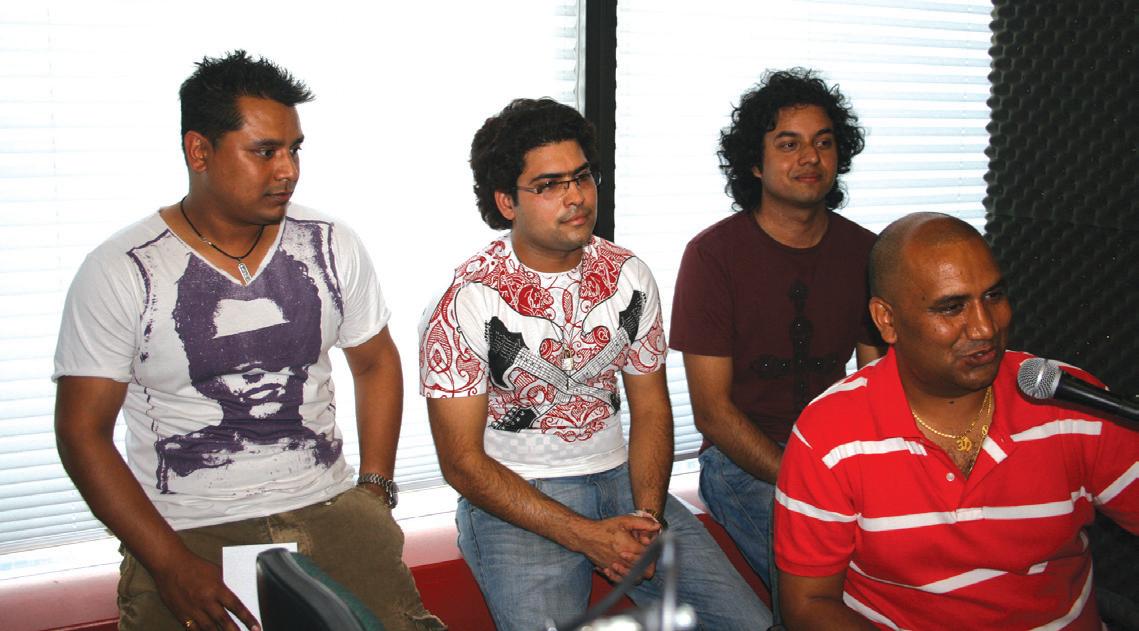
“Looking back, I think Arun impressed on many accounts, but I feel he has a great talent in picking the right song. Song selection was definitely the winner for him.”
And kudos to Arun for that. It shows that he understands his own skills as well as shortcomings, in terms of what will suit his style best. It also shows an innate understanding of what the audience wants to hear – absolutely essential for an entertainer.
Sydney musician Subhendu Malakar, who acted as judge along with Thakur, feels that what took Arun farther than the others was not only his song selection but also his dedication to the cause.
“Arun came across as sincere and committed from the beginning. He listened to the judges’ advice and incorporated it into his act”.
Both agree that Arun is cut out for the Shaan/KK style of singing.
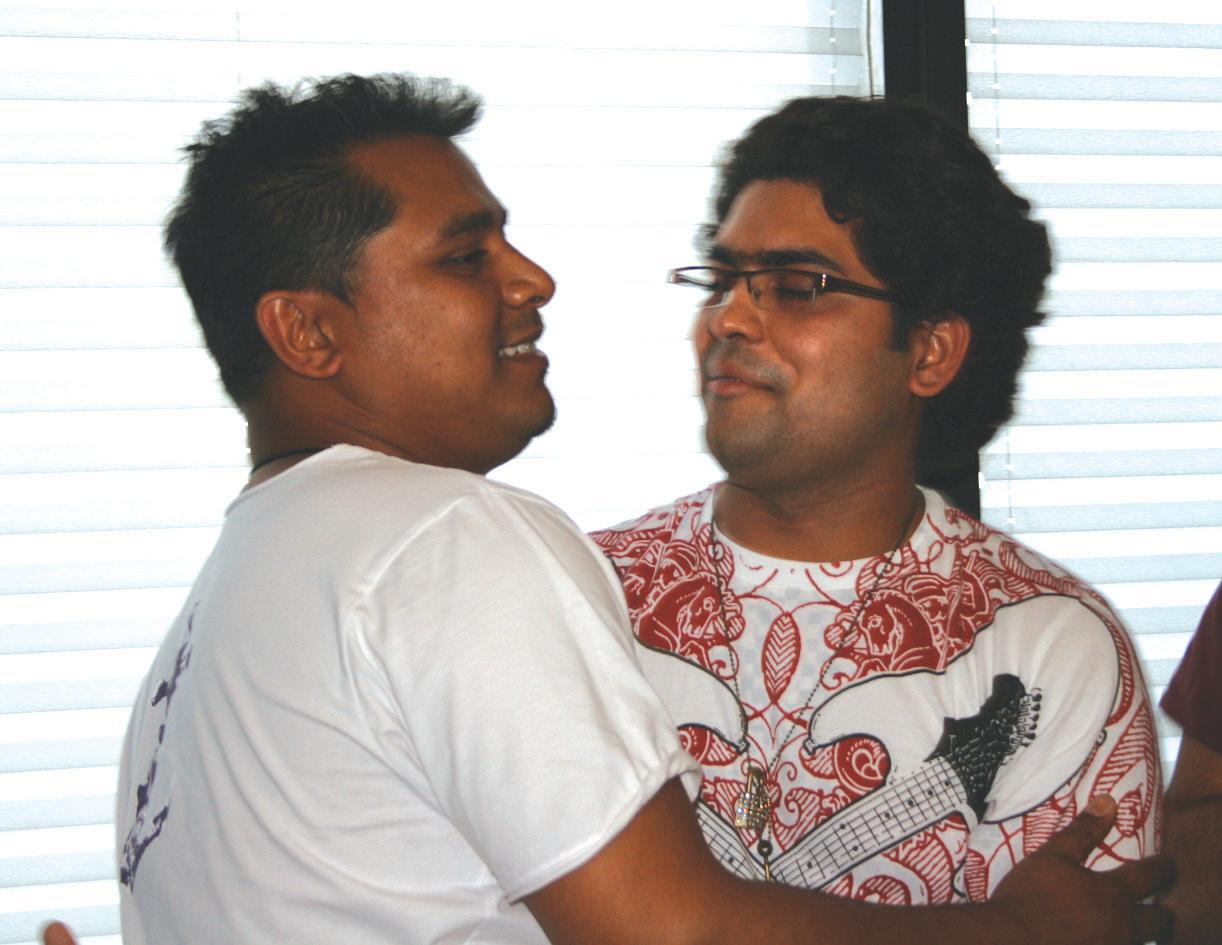
For his final (impromptu) performance on ILI 2009, indeed for the final song in the show, Arun took the mike along with last year’s winner Ankita Sachdev. They sang the dreamy Tum mile, dil khile - no music, no practice. It brought the house down.
Ili 2009
This year’s contest was much tougher, Rajesh Thakur, the brain behind the series, reveals.
“Well, last year was a success, and this year we had to strive to go higher, so we made the competition tougher!”
He must be so glad he did, because twice as many participants turned up this year, and three times as many votes were cast (including some from India as well).
Contestants came from Sydney, Melbourne, Canberra and Brisbane, although no Brisbane singer went past the initial rounds.
“As well, we made the themes more interesting,” Rajesh notes. “See, we had to keep in mind not only the contestants but also the listeners. So this year’s talent hunt was for the overall, or complete, singer – who can sing in different styles, jiska sur-taal theek ho, expressions theek hon (example love song bhi aur dard-bahre gaane bhi gaa sake). Hamne socha ke singers ko different genres mein check kiya jaaye – soft numbers, peppy numbers. And yet, in each round, we gave them the opportunity to be flexible. For instance, each round required them to sing three numbers: one of these was an open challenge, such as pick a song by your favourite singer, or a song that you would have loved to have sung for a particular movie”.
It turned out to be a tough but entertaining contest, one in which it was so obvious the skill levels were steadily rising. The judges eliminated singers on a weekly basis until all but six were left, and then handed them over to the voting audience.
“We attracted some very talented singers this year: Rajesh says. “Kshitij and Gurpreet were great, no doubt, but so was Jasmine Gill who lost out by a mere six votes. Priyanka Rao and Pankaj Bankoti came pretty close too”.
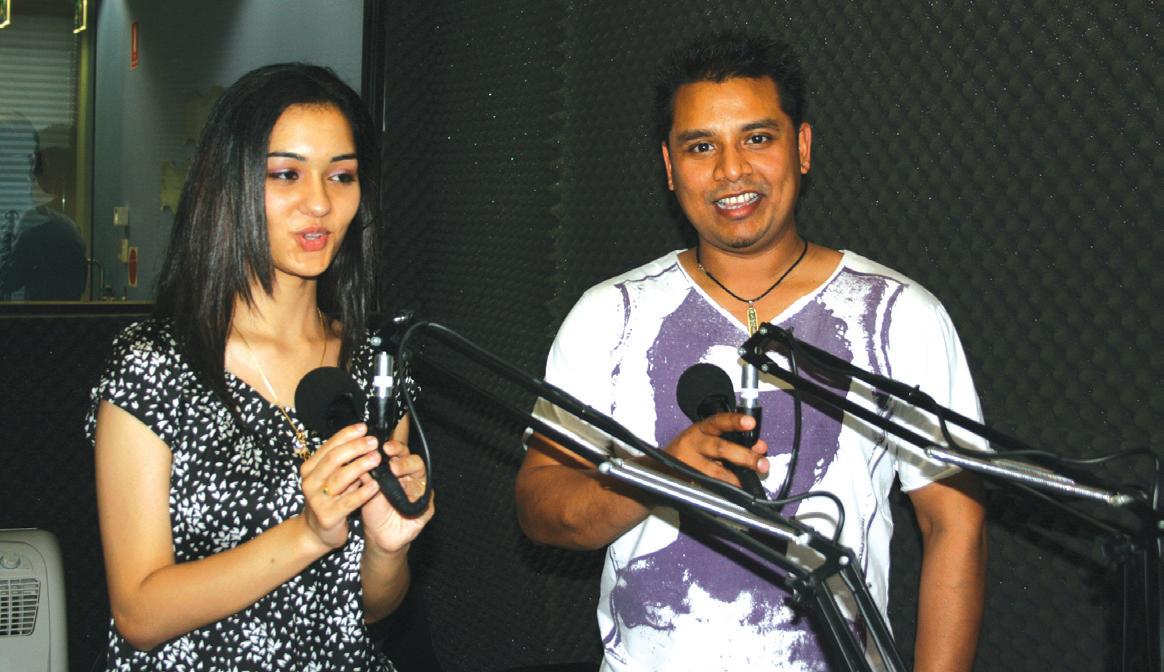
“Yes, they did,” Subhendu agrees, adding, “It was quite challenging for me to pass ‘judgment’ week in and week out. I tried hard to be encouraging. My sole aim was to get them to understand their shortcomings, accept them and then act to change them. Improvement is what I wanted”.
Obviously Kyle Sandilands was not a role model as Idol judge.
As an organiser of local shows with his band Unplugged, Subhendu is always motivating young singers and guiding them to greater heights, and does in his routine life what he did on ILI for four months.
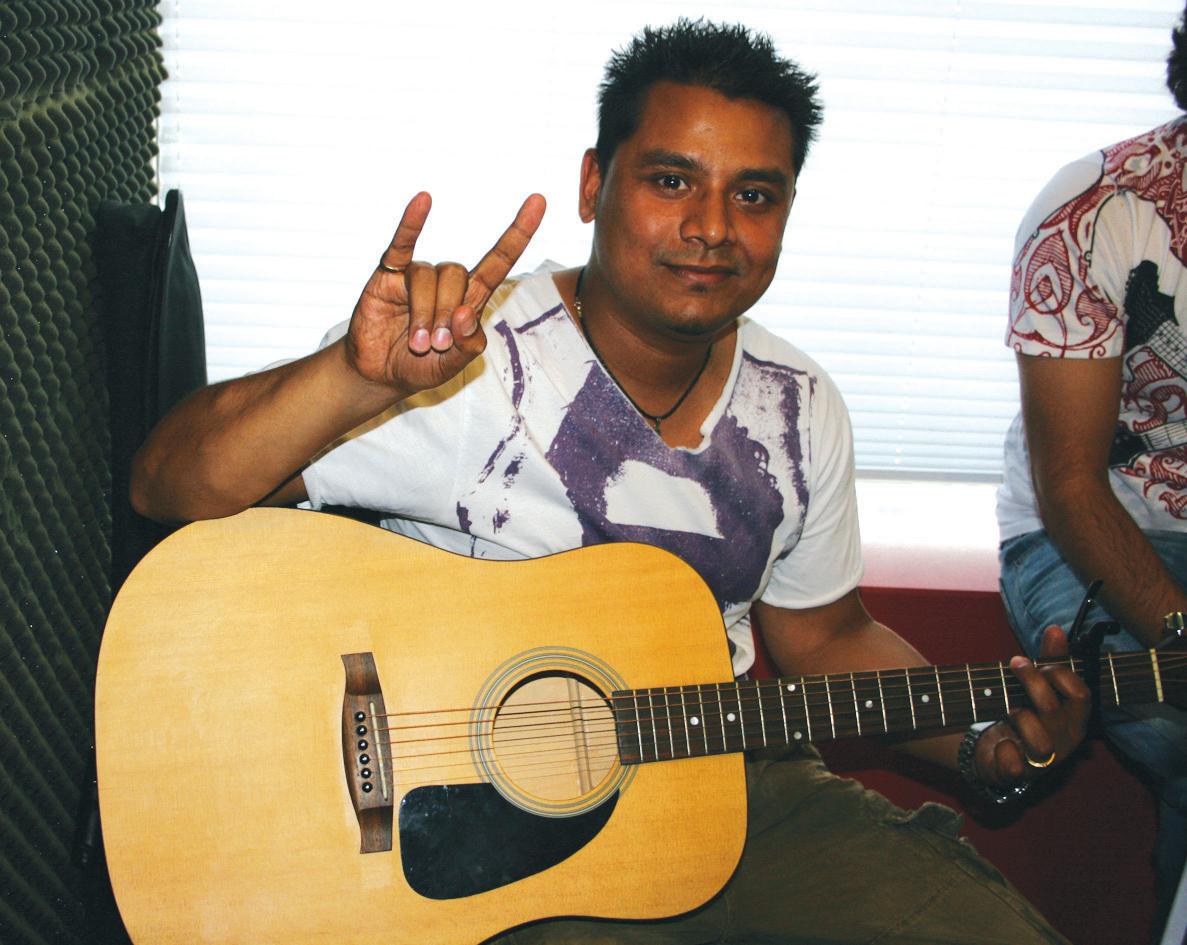
It’s been a pretty arduous four months for Rajesh Thakur. After the auditioning, he worked with the singers to pick their songs and then set about finding the accompanying karaoke for each.
“Sometimes that proved to be quite a challenge. For instance, for one particular number (More saiyyan), I had to contact the original singer Shafaqat Amanat Ali. Of course he readily obliged”.
Then he would record the song. Often he would do retake after retake, to get it just right.
“I wanted the best possible quality – from the listeners’ point of view”.
Hours of editing would follow.
The result is that the recordings are all good, some pretty close to the original. They are now part of the station’s playlist. In fact, it is becoming common for listeners to ring in and request a particular song “but in Jasmine’s voice not Lata’s” or in “Arun’s voice not Kishore’s”.
And then finally, he coordinated with the hosts of the show, popular Indian Link presenters Raghu Kamath and Amit Grover.
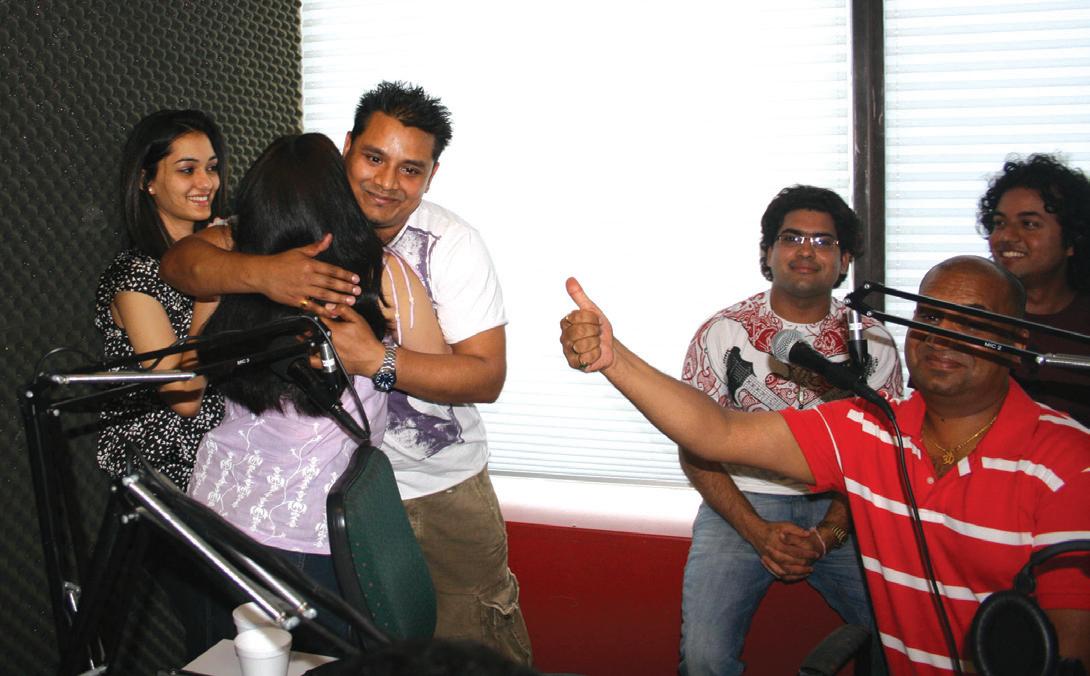
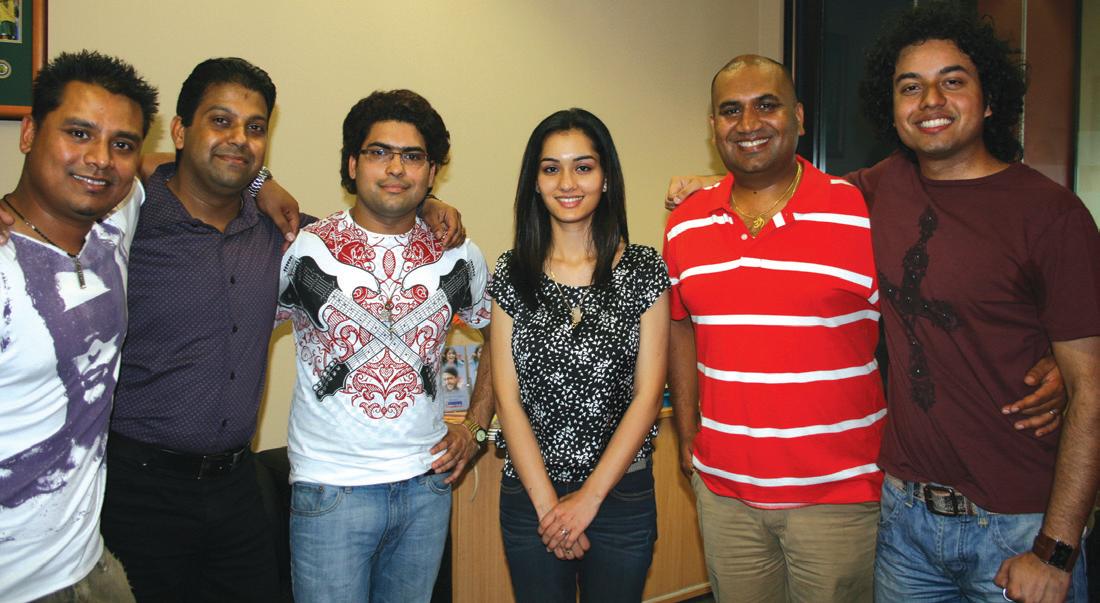
With the anchors too this time, Rajesh sought a change. While last year’s anchor, the beautiful and captivating Vertika Sukhwal chose to concentrate on the music, this year Raghu and Amit concentrated on the singers themselves, and made them the “stars”. With their easy-going and funloving style, both hosts brought in a good splashing of hansimazaak
“I’m full of admiration for Rajesh,” Subhendu says. “He’s done a brilliant job in providing a platform for budding singers. Now how about live shows for the semifinals and finals? Get people out there to see the work you’re doing…”.
Rajesh reveals smilingly that he’s already looking into it. A unique concept – this is perhaps the only live radio and online Idol format – ILI will continue to evolve in the years to come. While the true measure of its success continues to be the unearthing of talent, and providing hours of entertainment for the listeners, the hope is that perhaps some day Indian Link Idols will move onto bigger and better things.
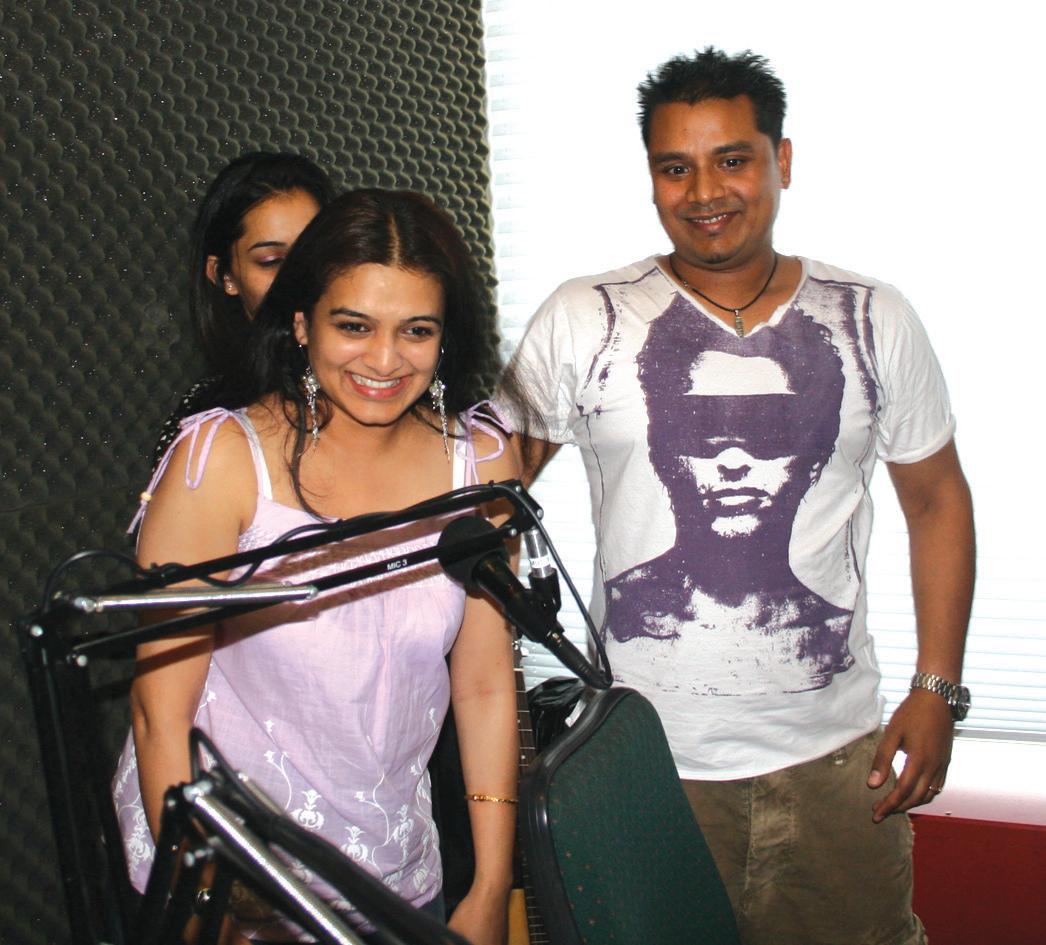
Subhendu says, “Many of the popular singers of our era have originated abroad… I sincerely hope that some of our own finds from contest such as these can become part of the industry in India”.
Amen to that.










